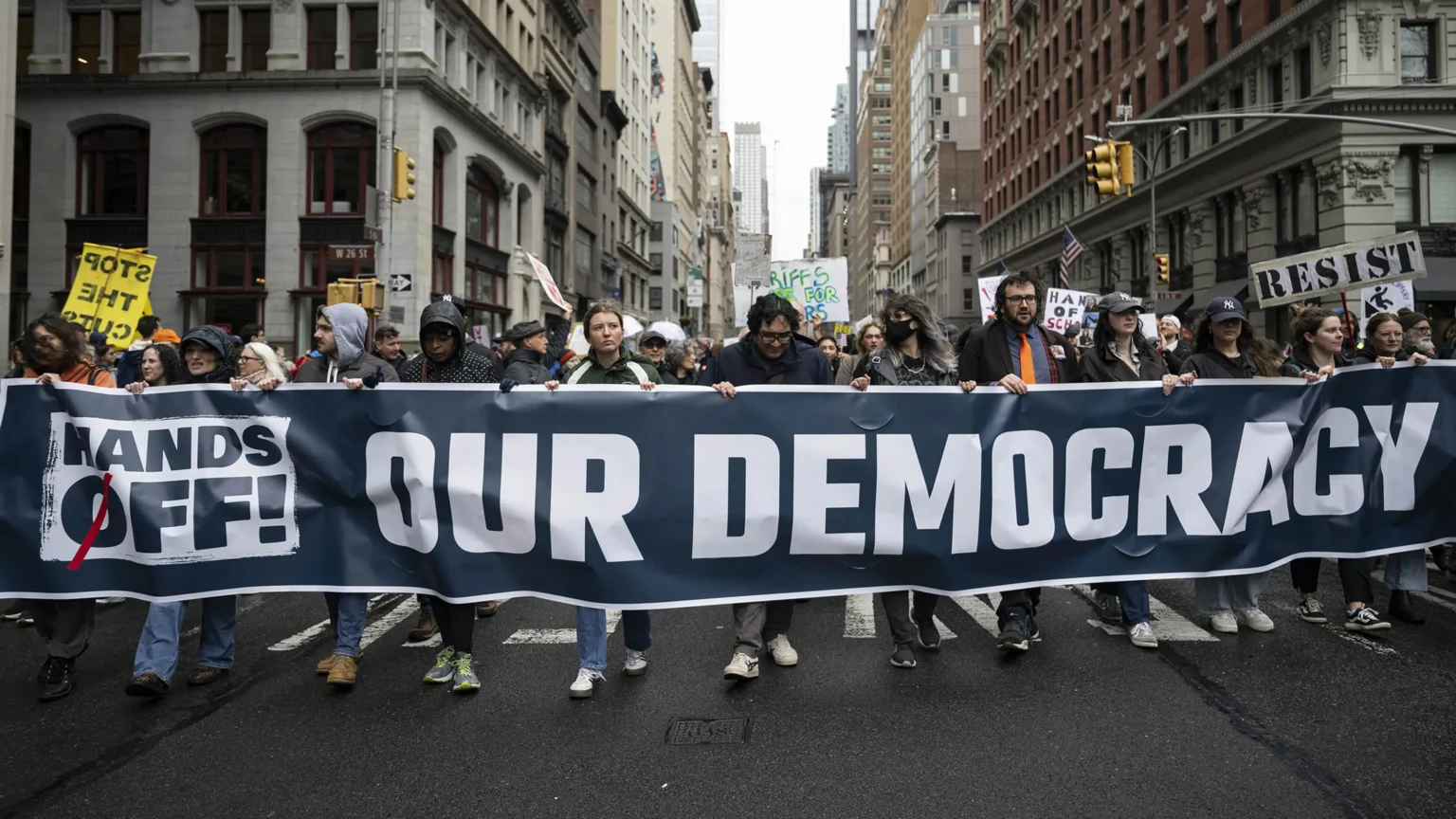In an extraordinary show of international solidarity, protesters flooded the streets of major cities across the globe this past weekend in a unified stand against what many see as the rising tide of authoritarianism and unchecked tech influence. The protests, dubbed the “Hands Off” movement, targeted former U.S. President Donald Trump and billionaire tech mogul Elon Musk, bringing together diverse communities under a shared cry for justice, democracy, and accountability.
From New York to Nairobi, and Atlanta to Accra, more than 50 cities saw coordinated demonstrations. Organizers claim this was one of the largest globally-synchronized protest movements in recent memory.
What Sparked the Global Outrage?
The movement began with an online call to action, spreading rapidly across social media platforms before spilling into the streets. Protesters expressed deep concern over what they described as authoritarian policies and the expanding power of corporate tech leaders.
The message was loud and clear:
“They’re taking everything they can get their hands on—our health care, our data, our jobs, our services—and daring the world to stop them,” said organizers in a joint statement. “This is a crisis, and the time to act is now.”
While the protests varied by location, common themes emerged: opposition to Trump’s immigration and border enforcement policies, concern over threats to democratic institutions, and increasing frustration with Elon Musk’s growing dominance in industries ranging from artificial intelligence to space exploration, media ownership, and automated labor.
On the Ground: Voices of the Protest
In Washington D.C., Everett B. Kelley, president of the American Federation of Government Employees, energized crowds with a powerful call to action:
“We will not be silenced,” Kelley declared. “We will not bow down. We’ll stand up and say, ‘Hands off our union.’ We’ll stand up and say, ‘Hands off our contract.’ We’ll stand up and say, ‘Hands off our democracy, hands off our freedom.’”
- Advertisement -
A protester in Berlin held a sign that read, “Democracy Is Not for Sale,” while chants in Johannesburg echoed with “People Before Profit.”
In Los Angeles, one organizer summed up the sentiment:
“These billionaires keep buying influence while people can’t afford healthcare. Trump tries to criminalize the poor, while Musk automates them out of jobs.”
Trump Supporters Respond
Despite the criticism, Trump’s supporters remain firm in their backing. A spokesperson from The White House emphasized:
“He will always protect Social Security, Medicare, and Medicaid for eligible beneficiaries. Meanwhile, the Democrats’ stance is giving Social Security, Medicaid, and Medicare benefits to illegal aliens, which will bankrupt these programs and crush American seniors.”
But many believe the policies are already disproportionately affecting undocumented immigrants, federal workers, and low-income seniors, adding fuel to the ongoing unrest.
Musk’s Role in the Spotlight
Though not a politician, Elon Musk’s increasing visibility in political and social arenas has drawn scrutiny. Critics argue that Musk’s influence over platforms like X (formerly Twitter), his automation-driven job cuts at Tesla, and his ventures into AI and brain-computer interfaces signal a shift where unelected billionaires hold disproportionate sway over public life.
“Tech shouldn’t govern humanity,” a protester in Toronto said. “We didn’t vote for Elon, but we all live in his world now.”
Why This Protest Matters
This weekend’s protests were not just anti-Trump or anti-Musk—they were pro-democracy, pro-worker, and pro-accountability. In a world increasingly shaped by corporate lobbying and authoritarian tactics, demonstrators say they are reclaiming their voice.
“We thought we would give people a chance to show their strong feelings about what the government is doing and how it is hurting lots and lots of people,” said a Washington organizer. “I can’t even name all the ways things have gone off the rails.”
What’s Next?
While the protests have largely concluded for now, organizers have hinted at further actions if demands are not addressed. They are calling for:
- A halt to deportations and aggressive border enforcement
- Reforms in tech regulation and worker protections
- Greater accountability from political and corporate leaders
- Public investment in healthcare, social safety nets, and data privacy
Final Thoughts
The message from the streets is clear: People across the globe are united in their demand for fair governance, human rights, and accountability. Whether politicians and tech giants are ready to listen remains to be seen.












